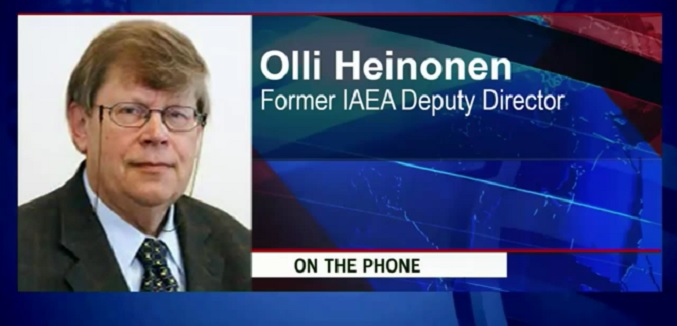A range of stories published over the weekend and into Tuesday indicate that Iran is preparing to expand its declared plutonium program and has not yet accounted for a potentially vast clandestine uranium enrichment program, with new analysis suggesting that the latter may expand Iran’s previously known capacity significantly.
The Sunday Times this weekend quoted Olli Heinonen, a former deputy director-general of the International Atomic Energy Agency (IAEA), as saying it was possible that Tehran is in possession of five times the advanced IR-2M centrifuges than previously disclosed:
Heinonen said Tehran “could have up to 4,000 to 5,000 [IR-2m] centrifuges or raw materials for them” located outside two of its largest nuclear sites, Natanz and Fordow.
The Algemeiner reported on remarks made by Heinonen on a conference call yesterday with The Israel Project, publisher of The Tower, to the effect that the additional next-generation centrifuges would, among other things, shorten the amount of time it would take Iran to achieve nuclear breakout.The allegations are likely to deepen calls that a final deal between Iran and the P5+1 powers include a robust verification system, and for the Islamic Republic to come clean about its past weapons work.
An IAEA report leaked on Friday declared that Iran was still denying the agency access to sites where military-related nuclear research is thought to have taken place, threatening any post-deal verification regime. The IAEA needs to benchmark the full scope of Iran’s program now, so that all components of the program can be built into an agreement which the IAEA will monitor following an agreement:
Iran has not provided any explanations that enable the Agency to clarify the outstanding practical measures, nor has it proposed any new practical measures in the next step of the Framework for Cooperation.
Meanwhile, Russia announced on Tuesday—less than two weeks before the deadline for the West to reach an agreement with Iran—that Moscow and Tehran had signed a deal to build up to eight new nuclear reactors in the Islamic Republic, in what Iranian nuclear chief Ali Akbar Salehi called a “turning point in relations” between the two countries. Russia and Iran had in September announced major trade initiatives that were at the time described as a way for Tehran to dodge Western sanctions pressure.
[Photo: NewsmaxTV / YouTube]




